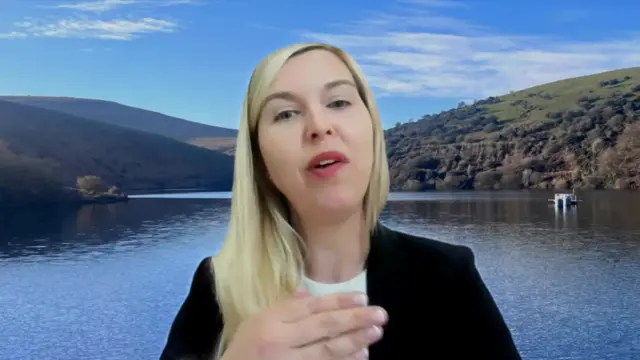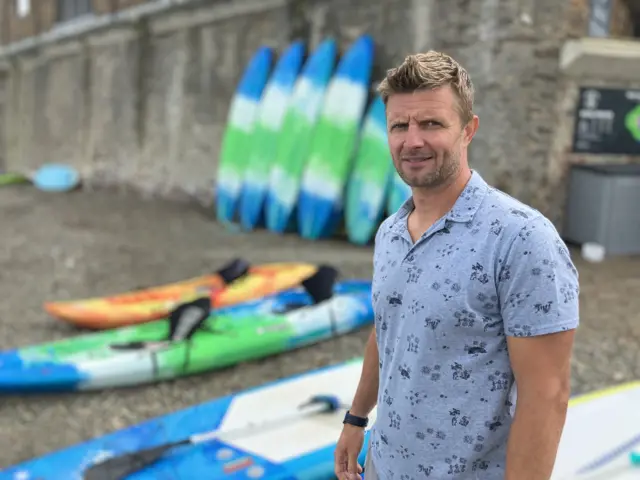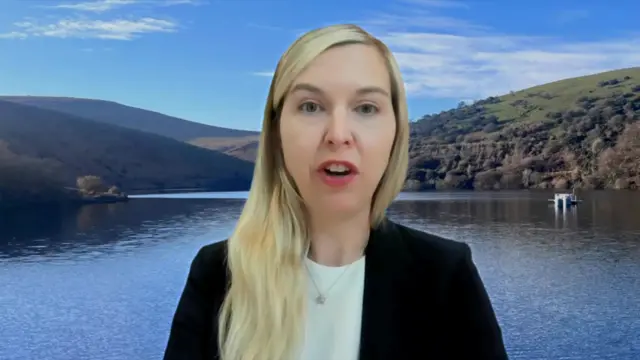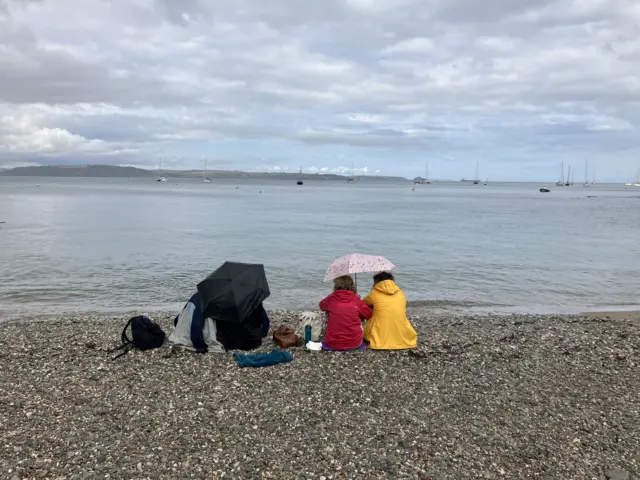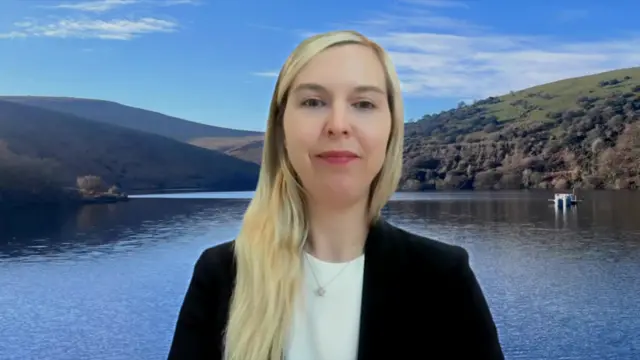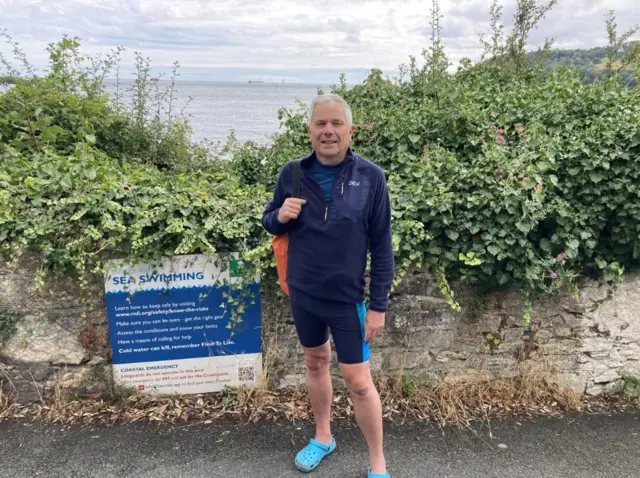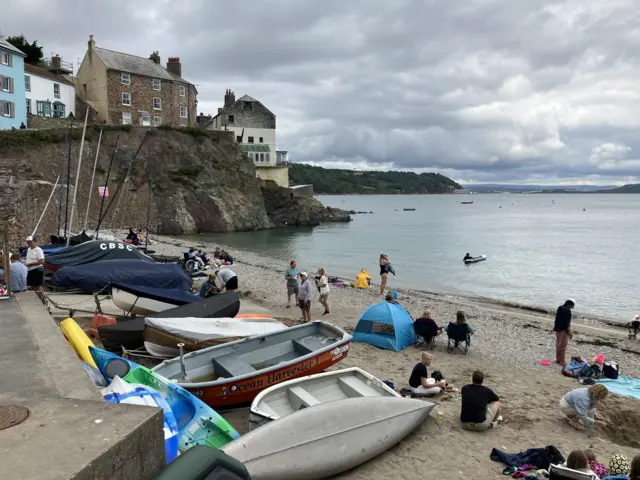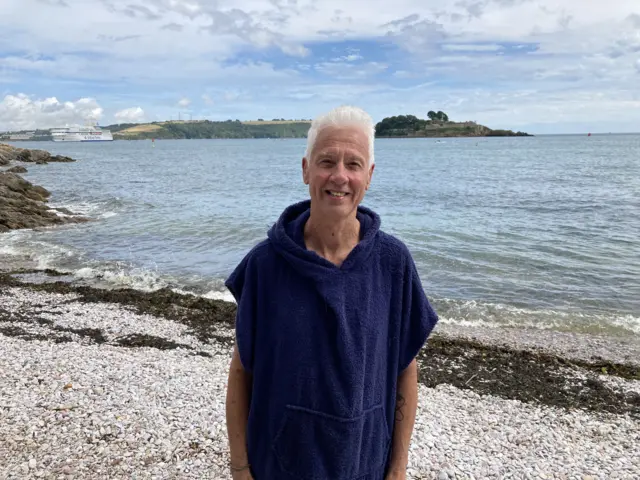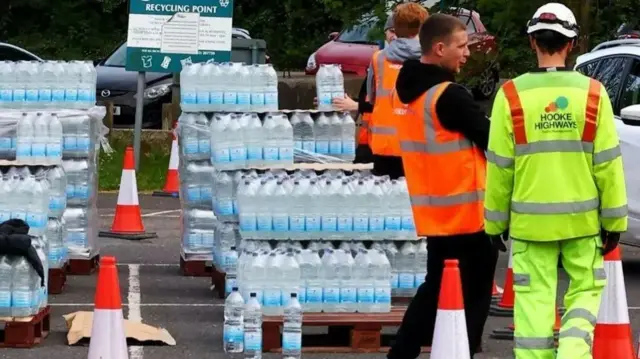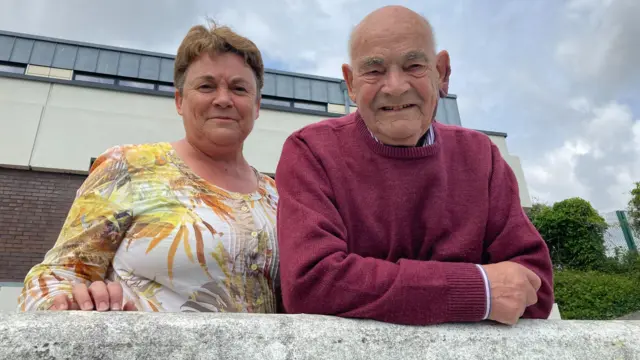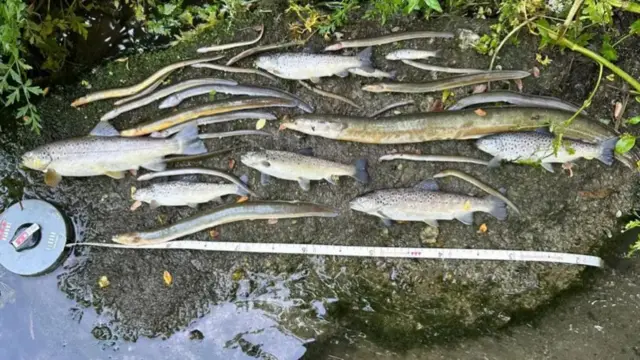How do I know what the water quality is where I want to swim?published at 19:47 BST 22 July
 Lisa Young
Lisa Young
BBC News, South West
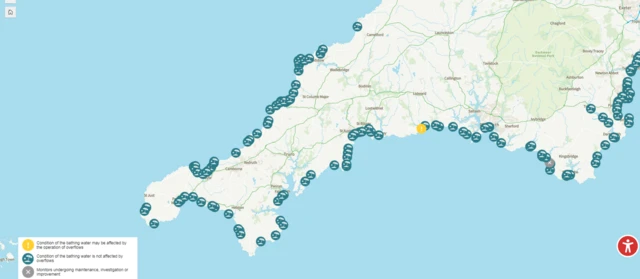 Image source, South West Water
Image source, South West WaterThere are various ways to find out what the quality of the water is where you are planning to go swimming.
The Environment Agency and Department for Environment, Food and Rural Affairs run a website with details from designated bathing water areas of England.
A map on the website shows each area, external which is a designated bathing water zone with a rating out of three stars.
South West Water shares real-time data about storm overflows on a map on its website, external that shows whether bathing waters have been affected.
Environmental charity Surfers Against Sewage also has a live water quality page on its website, external which has information about water quality at bathing sites.
